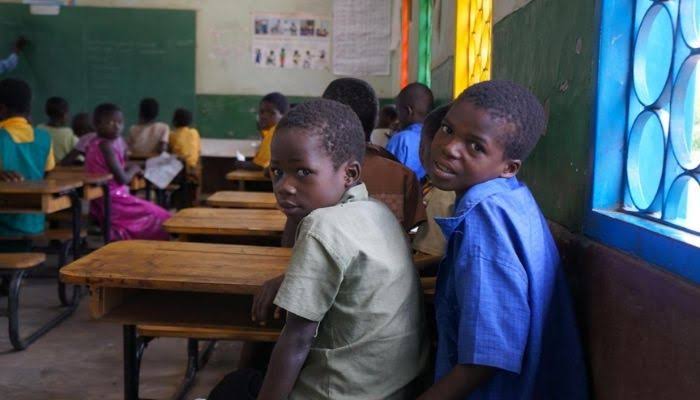Children’s Day: School safety – a failed promise in Nigeria

Nigerian school children. Photo Credit- Business Day
On May 27, 2025, which is the Children’s Day celebration, Nigeria’s schools, meant to be sanctuaries of learning and hope, stand as stark symbols of a stolen childhood, plagued by relentless insecurity. The Nigerian Financial Intelligence Unit (NFIU) reported on April 29 that over 735 mass abductions have occurred since 2019, with schools increasingly targeted. In early March 2025 alone, 287 pupils were abducted in Kaduna. As the world celebrates children’s rights to safety, education, and a brighter future, Nigerian children face a grim reality where classrooms have become battlegrounds. This piece is set to explore the crisis of school insecurity, its devastating impact on a generation, and the urgent need for action to reclaim their right to learn in peace.
Nigerian schools under siege
School abductions in Nigeria have surged to alarming levels, transforming education into a high-risk endeavor. The NFIU’s April 2025 report, highlights 735 mass abductions since 2019, with the North West and North East bearing the brunt; 662 kidnapping-related events in the North West alone between 2019 and 2023. Kaduna has become a hotspot; on March 7, 2025, 287 pupils were taken from Chikun, followed by 15 children in Sokoto and 61 in Kajuru within days, with over 6,000 conflict fatalities, with schools increasingly targeted by bandits and insurgents like Boko Haram and ISWAP, who exploit the military’s absence.
Cost of school insecurity in Nigeria
The impact on Nigeria’s children is profound, robbing them of education and innocence. The UNDP estimates that 6.3 million Nigerians 27% of the population, needed humanitarian aid in 2024, with 2 million internally displaced, many of them children. School abductions exacerbate this crisis, deterring education in a country where 70% live below the poverty line. Recent research has seen several tertiary institutions struggle with insecurity, including the Federal University of Agriculture in Makurdi, where students have been kidnapped. The ripple effects are devastating; children, released after a ransom payment, now refuse to return to school, a story repeated across the North.
The psychological toll is immense. Save the Children’s 2025 International Day of Education report highlights that extended time out of school increases risks of child marriage, labor, and trauma. In Nigeria, where 1 in 5 children dropped out by 2021 due to poverty and conflict. abductions compound these pressures. Nigeria is bleeding and our children are paying the price.
RELATED STORIES
Child labour: A persistent issue in Nigerian democracy
Despite ban on mining in Niger state, children are abandoning schools to survive in gold mines
How challenges with birth registration could affect Nigerian children’s future
Governance failures and the betrayal of public trust
The issue of school insecurity in Nigeria did not appear as a bolt from the blue but the root of this crisis lies in governance failures that have left schools vulnerable. Critics notes that Boko Haram and ISWAP operate freely in rural areas, abducting aid workers and attacking humanitarian hubs, while bandits control roads in states like Zamfara. State governments, such as Katsina in 2019, have exchanged detained bandits for victims, boosting the activities of criminals and non-state actors. President Tinubu’s plea on April 29 for Nigerians not to criticize his mismanagement reflects a troubling lack of accountability, especially as there were over 6,000 conflict deaths in 2024 which shows the government’s failure to secure schools.
A global call on Children’s Day: Solutions Over Silence
It won’t be enough to describe the situation of insecurity in Nigeria schools and criticize government’s lack of concern but to chart the way out of this murky waters. The Children’s Day, established by the UN to advocate for children’s rights, demands action, not mere celebration or indifference. Save the Children’s 2025 report calls for initiatives like Catch-up Clubs to address learning gaps, but Nigeria needs more security which must be prioritized. The government must deploy forces to rural schools, and crack down on ransom payments. International cooperation, could be used to disrupt financial flows to abductors. Grassroots efforts, like community vigilante groups in Kaduna, show promise but need federal support.
Conclusion
As the world honors the children’s day. Nigeria’s school insecurity crisis stands as a betrayal of their rights. The 735 mass abductions since 2019 are not just statistics, they are stolen, forgotten, and lost futures. Let’s face the real issues, a plea the government must heed. Without urgent action in securing schools, addressing poverty, and ending political games, Nigeria risks losing a generation. The Children’s Day celebration should be a turning point, not a reminder of failure. Nigerian children deserve to learn in peace, not fear. Their future and the nation’s depends on it.

